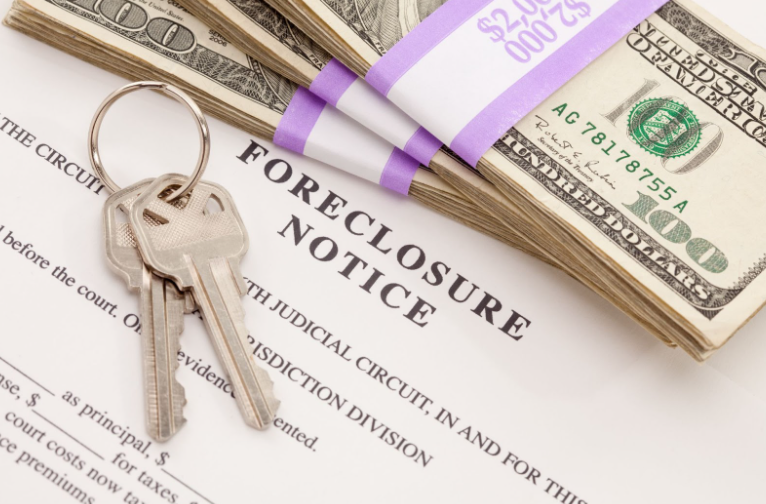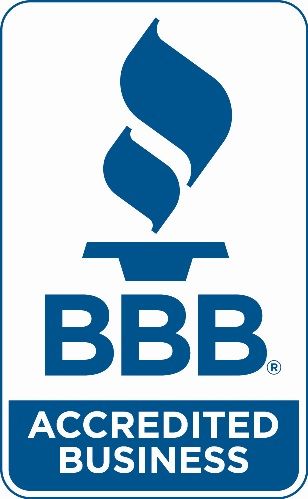Avoid Foreclosure: Cash Sales to Protect Your Credit Score
For individuals facing the daunting prospect of foreclosure, cash sales offer a lifeline to safeguard their credit scores. Let us shed light on the role of cash transactions in navigating financial challenges, providing a pathway to mitigate the impact of foreclosure on one's financial standing.
Foreclosure Fundamentals: Understanding the Impact on Your Credit Score
Foreclosure is a legal process initiated by a lender when a borrower fails to make mortgage payments as agreed. The process allows the lender to seize and sell the property to recuperate the outstanding debt. Foreclosure begins after a series of missed payments, often after the borrower has missed payments for 3-6 months, depending on the lender's policies and state laws.
The timeline of a foreclosure process can vary significantly from one case to another, depending largely on state laws and how quickly the lender moves forward. Generally, the process might take from a few months up to a year or more. It starts with pre-foreclosure, followed by the issuance of a notice of default. If not resolved, the property then moves to an auction. If the property does not sell at auction, it becomes a bank-owned property, also known as REO (Real Estate Owned).
On a credit report, a foreclosure is recorded as a significant
derogatory mark. From the first missed payment leading to the foreclosure, each stage of the process can be noted, seriously damaging a borrower’s credit score. The exact impact varies, but foreclosure can lower a credit score by 100 to 150 points or more, significantly affecting a borrower's ability to secure future loans and favorable interest rates.
Statistics from credit reporting agencies and financial institutions suggest that the presence of a foreclosure on a credit report can reduce a borrower's credit score dramatically. The magnitude of the impact depends on the borrower’s credit score before the foreclosure; individuals with higher scores may see a more significant drop.
Foreclosure items can remain on credit reports for up to seven years from the date of the first missed payment that led to the foreclosure. Considering this long-lasting impact, taking timely action to address financial difficulties can be crucial in preserving credit health. Once the foreclosure process begins, it becomes more challenging to mitigate its effects on your credit score, making early intervention key to avoiding lasting financial repercussions.
Strategies to Minimize Foreclosure's Impact on Your Credit
Facing financial hardship can be daunting, especially when your home and credit score are at stake. There are effective strategies to manage and potentially minimize the impact of foreclosure on your credit health.
Early Communication with Lenders
The cornerstone of foreclosure avoidance is early communication with your lender. At the first sign of financial strain, it’s crucial to inform your lender. Many lenders have programs designed to assist borrowers facing hardships. Proactive communication can open the door to various forms of aid, from loan modification to temporary forbearance.
Negotiating Loan Modifications or Forbearance Agreements
Loan modifications involve adjusting the terms of your mortgage to make payments more manageable. This might include extending the loan term, reducing the interest rate, or changing the type of loan. Forbearance agreements, on the other hand, allow for a temporary pause or reduction in your mortgage payments. Here’s a step-by-step guide to negotiating these terms:
1.
Gather Documentation: Prepare all relevant financial information that illustrates your current hardship.
2.
Contact Your Lender: Reach out to your lender’s hardship department and express your willingness to keep your home.
3.
Propose a Plan: Clearly present your case and ask for available hardship programs.
4.
Negotiate Terms: Understand the proposed terms thoroughly and negotiate modifications that suit your financial situation.
5.
Agree and Comply: Once an agreement is reached, ensure you comply with the new terms to avoid default.
Short Sale as an Alternative
A short sale occurs when a lender agrees to sell the property for less than the outstanding mortgage balance. While still affecting your credit score, a short sale can have a less severe impact compared to a foreclosure. It requires lender approval and could result in tax implications on the forgiven debt.
Deed in Lieu of Foreclosure
Offering a "deed in lieu of foreclosure" involves transferring your home's title to the lender to avoid the foreclosure process. While it will still negatively impact your credit score, it can be less damaging than a foreclosure. The process involves negotiation with your lender and may release you from your mortgage obligations.
Bankruptcy and Foreclosure
Filing for bankruptcy is a drastic measure that can stop the foreclosure process but comes with a significant and lasting impact on your credit score. Chapter 13 bankruptcy may allow you to keep your home and restructure your debts, while Chapter 7 might lead to the loss of your property but discharge other debts. Bankruptcy should be considered carefully, ideally under the guidance of a financial advisor or attorney, as its implications are profound and lasting. While foreclosure can severely impact your credit health, understanding and exploring these strategies can provide a roadmap to managing financial difficulties more effectively.
Embracing the Certainty of Cash Sales to Avoid Foreclosure
In the quest to avoid the severe implications of foreclosure on credit scores, many homeowners are turning to cash sales as a viable alternative. Selling your home for cash not only circumvents the lengthy and credit-damaging foreclosure process but also offers a beacon of certainty in turbulent financial times.
The Advantages of Cash Sales
Engaging in a cash sale to a professional home buyer offers several distinct advantages. Foremost among these is the speed of transaction. Unlike conventional market sales, which can drag on due to mortgage approvals, inspections, and appraisals, cash sales can conclude in a matter of weeks, if not days. This rapid turnover is crucial for homeowners looking to alleviate financial strain without further damaging their credit. Cash sales typically involve fewer contingencies. Professional cash buyers often purchase homes "as-is," eliminating the need for costly repairs that a traditional seller might face. This "as-is" provision means homeowners can transact without the additional financial burden of renovating or repairing the property to meet market expectations.
Mitigating Credit Impact with Quick Cash Sales
One of the more compelling reasons to consider a cash sale is its potential to mitigate negative impacts on credit scores. Foreclosure can severely affect your credit score, making it difficult to secure loans or favorable credit terms in the future. By selling for cash before the foreclosure process concludes, homeowners can avoid the foreclosure mark on their credit history, preserving their credit score and future borrowing capabilities.
Real-Life Success Stories
The landscape is dotted with testimonials from homeowners who've successfully navigated out of the brink of foreclosure through cash sales. These stories typically share a common theme: a timely decision to sell for cash, circumventing the anticipated credit disaster that foreclosure would have spelled. One notable scenario involves a homeowner facing imminent foreclosure due to unemployment. By opting for a cash sale, they were able to sell their property within a month, satisfying their debt obligations and avoiding the foreclosure stain on their credit report. Cases like this underscore the practicality of cash sales as a strategic decision in preserving financial health.
Additional Resources for Homeowners Considering Cash Sales
For homeowners considering this route, it’s vital to conduct thorough research and due diligence. Understanding how to vet cash buyers—ensuring they're reputable and have a solid track record—is fundamental. Homeowners should seek references or reviews and possibly consult with a real estate attorney to navigate the process effectively. While foreclosure can seem like an insurmountable obstacle with profound impacts on one’s financial well-being and credit health, alternatives like cash sales offer a viable escape route.
By understanding the nuances of this option and taking decisive action, homeowners can sidestep the adverse effects of foreclosure and pave the way for a more stable financial future.
Ready to safeguard your credit score and avoid foreclosure? Don't let financial challenges dictate your future—contact Billings Home Buyers today to take control of your situation and secure a brighter tomorrow.












